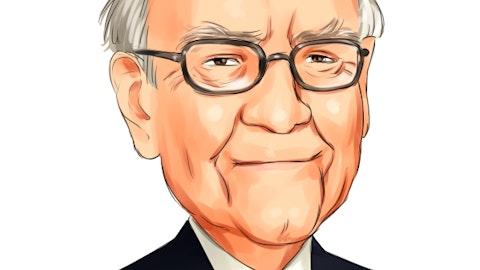Your company’s buying back stock? Hurray! Or should that be “Boo!”?
According to Boston University finance professor Allen Michel, when a company announces it’s buying back stock, that stock tends to outperform the market by 2% to 4% more than it otherwise would have over the ensuing six months.
But over the long term, multiple studies show that buybacks actually destroy shareholder value. CNBC pundit Jim Cramer cites the example of big banks that bought back shares in 2007-2008 — just before their stocks fell off a cliff. Far from buy signals, Cramer calls buybacks “a false sign of health … and often a waste of shareholders’ money.” Indeed, the Financial Times recently warned: “the implied returns over a period from buy-backs by big companies would have been laughed out of the boardroom if they had been proposed for investment in … conventional projects.”
So why run buybacks at all? According to FT, management can use them to goose per-share earnings, which helps CEOs earn bonuses based on “performance.” Also, the investment banks that run buybacks earn income and fees from promoting them. But you and me? Unless the purchase price is less than the shares’ intrinsic value, we miss out.
And we’re about to miss out again.
American Capital Ltd. (NASDAQ:ACAS)
Last month, business development firm American Capital — a subject of frequent controversy on these pages — announced it had just completed a massive, 8.8 million-share repurchase on the open market. At first glance, this looks like quite a good deal. AmCap says it spent $103 million on the shares, or about $11.72 apiece. With its shares now sitting north of $13, that works out to a tidy 12% profit already.
Indeed, you might even think AmCap should buy more. Management puts its net asset value at $17.39, or about 33% above today’s price, suggesting there’s more upside ahead. But here’s the thing: All this assumes that AmCap’s assets are worth what management says they’re worth. They might be. After all, over at Berkshire Hathaway Inc. (NYSE:BRK.A), boss Warren Buffett recently offered to pay as much as 1.2 times the book value of his own firm in another buyback announcement. But on the other hand, management is hardly unbiased on these kinds of questions. So how can shareholders know for sure they’re getting good value for their money?
It’s hard to get “under the hood” and examine AmCap’s assets directly. But logically, if they’re worth what management says they’re worth, then over time, they should produce profits for the company, and those profits should show up on the income statement — and here’s the problem.
Over the past 10 years, AmCap has netted a whopping $327 million — total — in profits from its business. That’s less than $33 million a year, giving the company about a 124 P/E based on its historical rate of earnings. Suffice it to say, this detracts from management’s credibility regarding how much its shares are worth… and whether it should be spending your money to buy back more of them.
The Boeing Company (NYSE:BA)
In contrast, Boeing’s announcement that it’s hitting the restart button on a $3.6 billion share repurchase program (and upping its dividend to boot) would ordinarily merit praise. Unlike AmCap, Boeing’s been consistently profitable over the past decade, raking in about $2.3 billion annually — and making nearly twice that over the past 12 months, en route to the company’s most profitable year ever.
Priced at only 13 times earnings, growing at 12%, and paying a 2.6% dividend, Boeing shares look like a value investor’s dream. But here’s the problem: Vastly profitable, Boeing is currently engaged in contentious contract negotiations with its SPEEA engineers’ union, pleading poverty and demanding concessions from the union. Announcing a share buyback in such a context seems a slap in the face to the SPEEA, and has been hurting the company’s chances of avoiding a labor strike. Considering that Boeing must have these engineers on the job to fix much-publicized problems with its Dreamliner aircraft, this buyback seems ill-considered, and particularly ill-timed.
Smith & Wesson Holding Corporation (NASDAQ:SWHC)
Now, I don’t like to end this column on a down note, and fortunately, this week I don’t have to. On one hand, you might think gun maker Smith & Wesson has even bigger problems than Boeing, what with the entire U.S. government (seemingly) now gunning for new strictures on weapons sales.
On the other hand… you’d be wrong. Historically, threats of legislation haven’t really hurt the gun industry financially. And having been around the block a few times already (the company was established in 1852), Smith & Wesson knows an opportunity when it sees one.
Last month, S&W announced it is buying back up to $35 million worth of its shares. The company generates nearly that much cash in an ordinary year. And considering that S&W sells for just 11 times earnings, is growing earnings at 30%, and has no net debt, I think the shares offer great value — for Smith & Wesson, and for the rest of us.
The article 2 Stocks That Are Wasting Your Money originally appeared on Fool.com.
Fool contributor Rich Smith has no position in any stocks mentioned. The Motley Fool recommends Berkshire Hathaway. The Motley Fool owns shares of Berkshire Hathaway.
Copyright © 1995 – 2013 The Motley Fool, LLC. All rights reserved. The Motley Fool has a disclosure policy.






